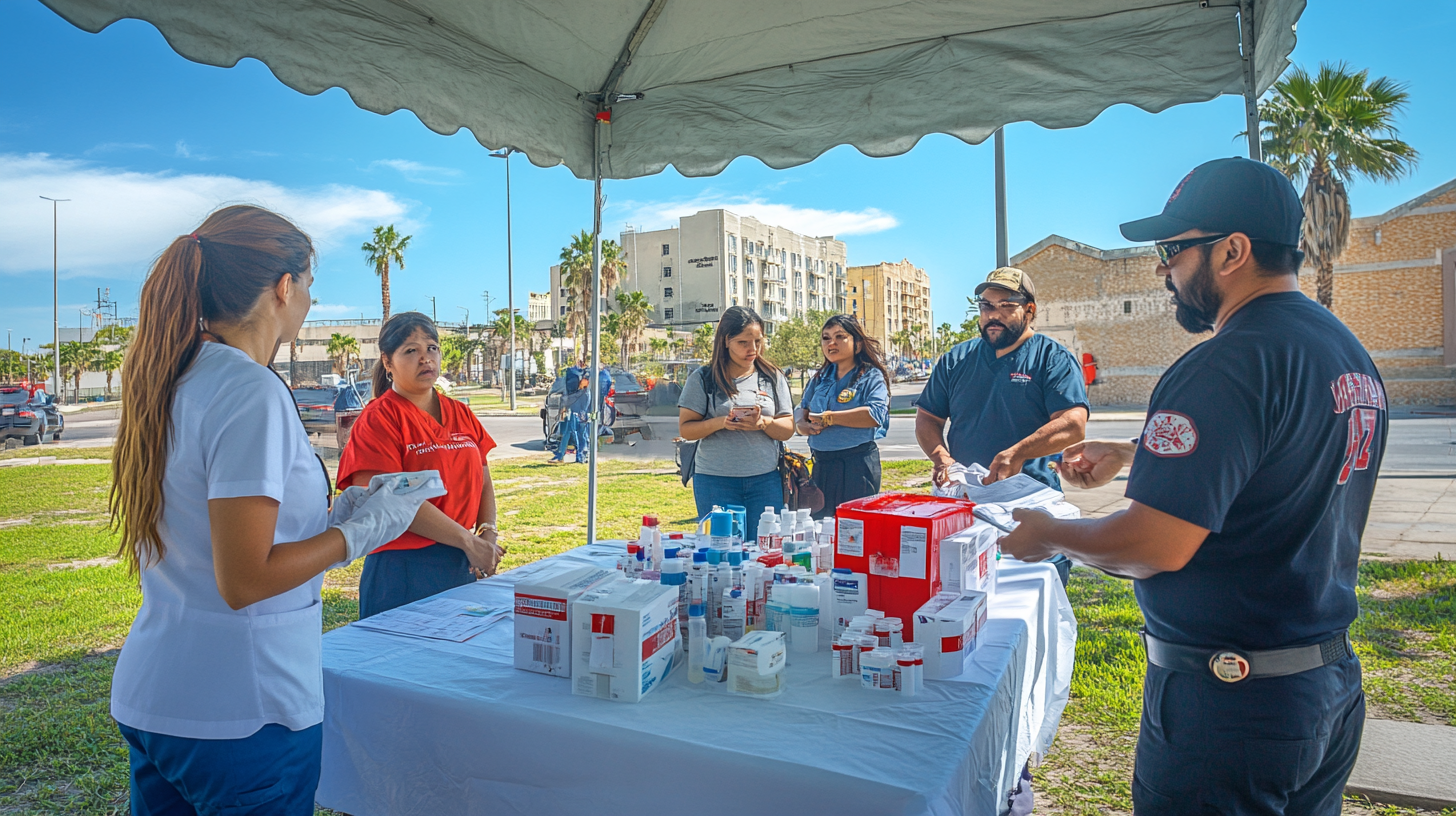UTRGV Medical Students Offer Free Skin Cancer Screenings to Harlingen Firefighters
In a proactive measure aimed at safeguarding the health of those who protect and serve, medical students from the University of Texas Rio Grande Valley (UTRGV) have launched a series of free skin cancer screenings for firefighters in Harlingen. Recognizing the increased risk posed to these public safety professionals, this initiative not only highlights the commitment to community health but also brings attention to the crucial issue of early cancer detection.
Firefighters at Higher Risk
Firefighters, due to their occupation, face elevated risks of developing melanoma, a severe form of skin cancer, attributed to frequent exposure to carcinogens encountered during firefighting. This revelation, supported by data from the American Academy of Dermatology Association, underscores the need for systematic preventative measures. Harlingen Fire Chief Rafael Balderas expressed his support for the screenings, highlighting their importance in an environment laden with health challenges. “Firefighters go into places where not everyone ventures. Amid fires, they encounter burning materials, including harmful plastics,” Balderas explained, underscoring the unique occupational hazards faced by his personnel.
In this context, UTRGV medical students have stepped forward, spearheaded by Smaran Marupudi, to conduct screenings directly at the Harlingen Fire Department. “Firefighters often have an increased risk due to carcinogens. They, along with pilots, are among the high-risk groups,” Marupudi elaborated, emphasizing the necessity of such medical initiatives in the RGV news landscape.
Understanding the Local Impact
This health-focused campaign resonates deeply within the broader South Texas community, where skin cancer remains a pressing concern. In the subtropical climate of the Valley, residents are exposed to sunlight nearly year-round. This consistent sun exposure amplifies the risk factors for skin cancer beyond those faced by firefighters alone. Marupudi pointed out the pervasive threat, noting, “We’re in a region where daylight exposure averages 316 days annually. A darker complexion doesn’t equate to full immunity against skin damage.”
Such observations are crucial for community interest and awareness, particularly as they challenge assumptions about skin cancer vulnerability across different demographics.
Community Awareness and Education
Education remains a cornerstone of this screening initiative. At the heart of their outreach, UTRGV medical students focus not only on immediate screenings but on educating Valley residents about early detection signs. Marupudi advises vigilance, instructing the community to monitor any unusual changes such as asymmetrical spots, irregular borders, or varying colors in skin moles—indicators warranting professional evaluation.
Fire Chief Balderas is hopeful his team will seize this preventative opportunity to mitigate potential health issues. “The aim is for our personnel to catch any problems early. Early detection significantly improves prognosis,” Balderas shared, expressing optimism about the anticipated impact of the program on his department’s overall health.
Connecting to Broader Issues
This initiative is particularly significant within the context of ongoing public health efforts in the region. Recent local events and reports have highlighted a range of health challenges faced by Valley residents, from chronic diseases to environmental exposures. The free screening program dovetails with these efforts, promoting overall wellbeing and setting a precedent for future health-driven endeavors in RGV.
Moreover, this action reflects a growing trend of local institutions actively engaging with their communities to address urgent health concerns—fostering partnerships between academic entities, public services, and residents.
What the Future Holds
The success of UTRGV’s skin cancer screening initiative could inspire similar collaborations across South Texas, potentially extending services to other high-risk professions and populations. By fostering a culture of preventative care and awareness, projects like these could redefine how communities approach healthcare challenges, emphasizing intervention and education.
Looking forward, Marupudi and his peers are considering expanding the scope of these screenings, envisioning a series of health events targeting various conditions and demographics—an aspiration that suggests promising health outcomes on the horizon for the greater RGV area.
Resources and Contact Information
For those interested in participating or learning more about skin cancer risk and prevention, the UTRGV medical team encourages community members to attend informational sessions or contact the university for further guidance. Providing free screenings and health information, these resources are critical in maintaining the community’s long-term health resilience.
As this impactful initiative unfolds, it captures the dedication and innovative spirit that characterizes the Valley. It serves as both a call to action and a testament to what can be achieved through collaborative efforts and community-focused health strategies.







